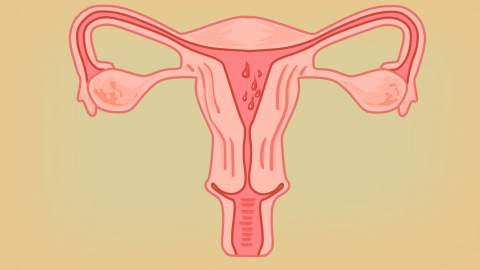What are the symptoms of endometrial hyperplasia?
Generally, the symptoms of endometrial hyperplasia mainly include menstrual abnormalities, irregular vaginal bleeding, prolonged menstrual periods, increased menstrual flow, and postmenopausal bleeding. If discomfort symptoms occur, it is recommended to seek timely diagnosis and treatment at a regular hospital. Detailed analysis is as follows:
1. Menstrual Abnormalities
Endometrial hyperplasia can affect the normal shedding and regeneration of the endometrium, leading to menstrual cycle disorders. This manifests as shortened or prolonged menstrual cycles, losing normal regularity, making the cycle unpredictable.
2. Irregular Vaginal Bleeding
Endometrial hyperplasia may cause vaginal bleeding outside the menstrual period. The timing of the bleeding is irregular, and the amount varies. Sometimes it may only be light spotting, while at other times heavier bleeding may occur, disrupting normal daily activities.

3. Prolonged Menstrual Periods
The usual menstrual period duration may be prolonged due to endometrial hyperplasia. A normal menstrual period typically lasts 3-7 days, but after developing this condition, the period may last longer than 7 days, even extending to several weeks, causing significant inconvenience to women.
4. Increased Menstrual Flow
Endometrial hyperplasia causes thickening of the endometrium, resulting in increased bleeding when it sheds. This manifests as significantly heavier menstrual bleeding than normal, sometimes including blood clots, and severe cases may even lead to anemia.
5. Postmenopausal Bleeding
Women who have already undergone menopause may experience vaginal bleeding if they have endometrial hyperplasia. This is one of the more typical symptoms and requires high attention.
If left untreated, endometrial hyperplasia may increase the risk of cancerous changes. In daily life, it is important to maintain good lifestyle habits, avoid excessive fatigue, pay attention to personal hygiene, and maintain emotional stability, all of which help maintain overall health. After diagnosis, it is essential to follow medical advice for treatment and undergo regular follow-up examinations to monitor disease progression.










